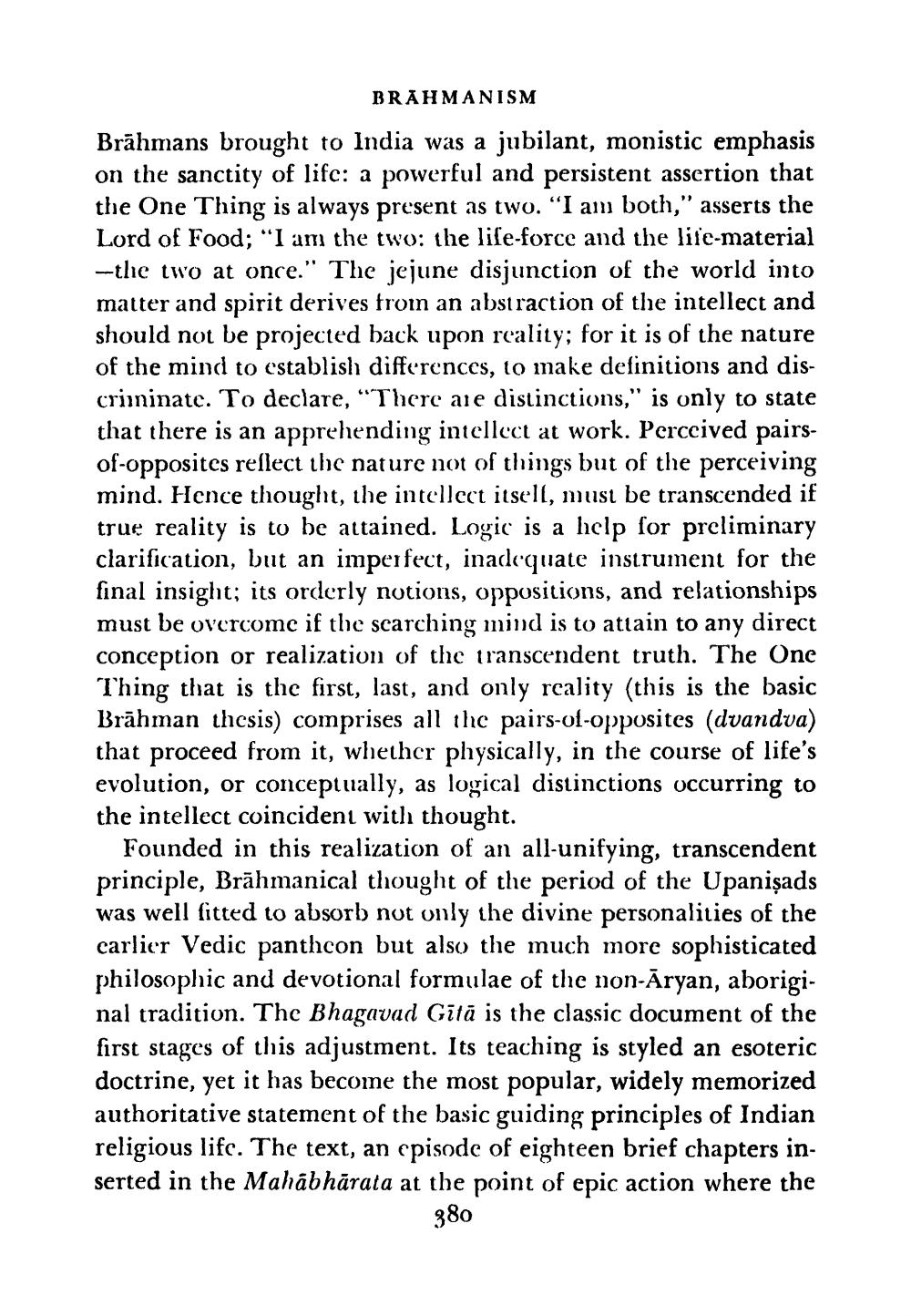________________
BRAHMANISM
Brāhmans brought to India was a jubilant, monistic emphasis on the sanctity of life: a powerful and persistent assertion that the One Thing is always present as two. “I am both," asserts the Lord of Food; “I am the two: the life-force and the life-material --the two at once." The jejune disjunction of the world into matter and spirit derives from an abstraction of the intellect and should not be projected back upon reality; for it is of the nature of the mind to establish differences, to make definitions and discriminate. To declare, “There are distinctions," is only to state that there is an apprehending intellect at work. Perceived pairsof-opposites reslect the nature not of things but of the perceiving
Hence thought, the intellect itsell, must be transcended if true reality is to be attained. Logic is a help for preliminary clarification, but an imperfect, inadequate instrument for the final insight; its orderly notions, oppositions, and relationships must be overcome if the scarching mind is to attain to any direct conception or realization of the transcendent truth. The One Thing that is the first, last, and only reality (this is the basic Brāhman thesis) comprises all the pairs-ol-opposites (dvandva) that proceed from it, whether physically, in the course of life's evolution, or conceptually, as logical distinctions occurring to the intellect coincident with thought.
Founded in this realization of an all-unifying, transcendent principle, Brāhmanical thought of the period of the Upanişads was well fitted to absorb not only the divine personalities of the carlier Vedic panthcon but also the much more sophisticated philosophic and devotional formulae of the non-Aryan, aboriginal tradition. The Bhagavad Gita is the classic document of the first stages of this adjustment. Its teaching is styled an esoteric doctrine, yet it has become the most popular, widely memorized authoritative statement of the basic guiding principles of Indian religious life. The text, an episode of eighteen brief chapters inserted in the Mahābhārata at the point of epic action where the
380




